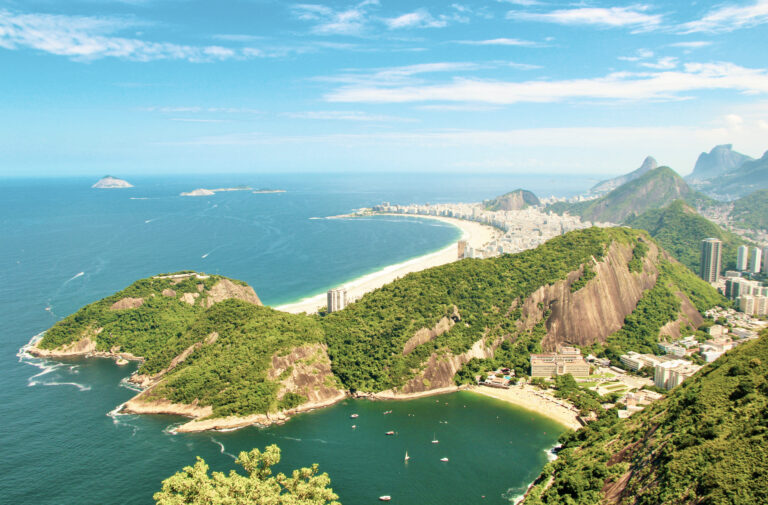How Trump’s Rhetoric Is Changing Tourism for the U.S. and Canada

With Donald Trump re-emerging on the political stage, Canada is responding with strong words—and stronger actions. While much of the media focus is on trade and diplomacy, there’s a quieter but equally impactful shift happening in tourism. As political rhetoric grows louder, so too does its ripple effect across airfare prices, traveler sentiment, and the once seamless experience of crossing the U.S.-Canada border. Here’s how the fallout is unfolding—and what it means for travelers on both sides.
Sky-High Airfare—And No Signs of Slowing

Canada’s airfare prices have already surged more than 19% year-over-year, driven by fuel costs, staffing shortages, and uncertainty about the U.S. relationship. Political volatility doesn’t help—it makes airline planning harder, adds insurance risk, and feeds market jitters. That’s bad news for anyone booking cross-border flights. Weekend getaways from New York to Toronto? Now a luxury. And if trade skirmishes escalate, brace for even steeper surcharges on air travel in and out of Canada.
Politics at the Border—Why It Matters for Travelers

Donald Trump’s recent rhetoric has reignited tensions between the U.S. and Canada, and this time, it’s hitting travelers in the wallet. Trade threats, nationalist soundbites, and “America First” messaging are fueling a growing chill in cross-border relations. For tourists, this isn’t just background noise—it’s reshaping how people travel, how much they pay, and how they’re received. Whether you’re planning a scenic trip to Banff or a weekend escape to Montreal, the fallout is real. As election season approaches, expect more turbulence not just in politics, but at the gate.
U.S.-Canada Tensions Are Back—and Bigger Than Before

This isn’t the first time Trump has targeted Canada, but the latest wave of comments and trade threats is prompting a much sharper pushback. Canadian leaders are taking a firmer stance, while everyday citizens are expressing growing skepticism about their southern neighbor. In an era of increasing polarization, these tensions aren’t staying in the news they’re spilling into the travel sector. Expect tighter borders, more scrutiny at customs, and a subtle but noticeable cooling in tourist hospitality. If politics used to stay in Washington, that line no longer exists.
Tourism Suffers When Neighbors Fight

Tourism thrives on good vibes and right now, U.S.-Canada relations are feeling icy. Travel operators across Canada report growing concern that Trump’s tone is souring perceptions of American visitors. The result? Fewer U.S. travelers, less cross-border spending, and increased marketing costs to rebuild trust. Cities like Vancouver and Montreal that once relied on American tourists may soon pivot harder toward domestic and European markets. For Americans used to a warm welcome up north, the vibe could feel…different.
The Rise of “Canada First” Travel

National pride is booming in Canada and it’s showing in tourism campaigns. More provinces are pushing staycations, local goods, and made-in-Canada experiences. While great for domestic business, it means fewer perks or promotions for American visitors. Canadians are embracing a mindset of self-reliance—not just economically, but culturally—and that’s reshaping what tourism looks like in 2025. If you’re planning a trip, expect less “cross-border coziness” and more “homegrown pride.”
Border Crossings Could Get More Complicated

Tough talk from U.S. leaders has historically led to changes in customs protocols—and that may be on the table again. If tensions escalate, don’t be surprised by longer wait times, more questions at entry, and tighter screening for U.S. citizens. The once-effortless weekend jaunt to Quebec could come with added friction. Even programs like NEXUS and Global Entry could face administrative delays or new layers of bureaucracy.
Economic Fallout Trickles Down to Tourists

Behind the headlines are real economic ripple effects—rising costs for hotel goods, fewer shared tourism initiatives, and disrupted cross-border supply chains. That means fewer joint festivals, scaled-back event partnerships, and rising prices for travel-related goods (like food, wine, and rental cars). The charm of seamless U.S.-Canada travel is under pressure. And if tit-for-tat tariffs return, even duty-free shopping might feel a little less friendly.
Canadian Sentiment Toward American Tourists Is Changing

Once warmly welcomed, American tourists are now viewed with a more critical eye in some regions of Canada. It’s not personal—it’s political. According to recent travel sentiment surveys, Canadian attitudes toward U.S. visitors fluctuate based on who’s in office and what they’re saying. And with Trump back in the spotlight, local frustration may trickle down to tourists. You might not get worse service—but don’t expect the same red-carpet vibe as before.
This article was written by a human and edited with AI Assistance






